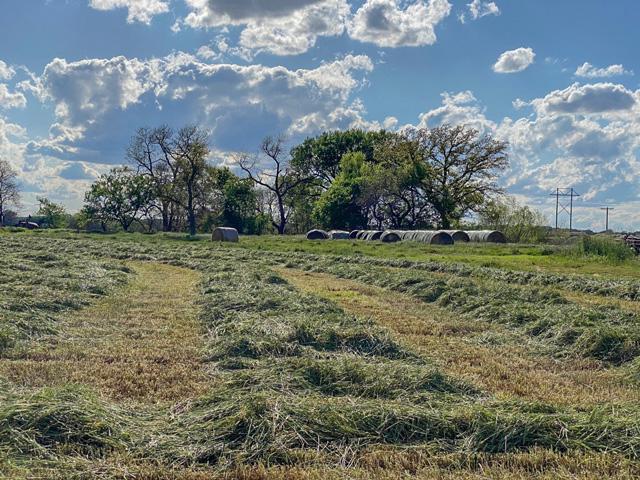Ask the Vet
Feeding Mature Wheat Hay
READER QUESTION:
Would you please explain any risks of feeding mature wheat hay to cows?
DR. KEN MCMILLAN'S ANSWER:
Wheat can make excellent hay. Wheat cut in the boot to very early head-emergence growth stage can have a very high nutrient content. Yield may be increased by waiting until the early milk stage of the grain, but it will be much lower in quality.
Forage testing is a quick and easy way to assess hay quality and allows you to decide if supplements are needed to meet nutrient requirements for the life stage of the cattle to which the hay is to be fed.
This being said, there are some concerns with wheat hay. My first question would be: Why was the wheat cut for hay and at what stage? One serious concern would be if drought-stressed wheat was harvested for hay as a salvage procedure. High temperatures, low moisture and low relative humidity (especially when combined with high nitrate fertilization) can cause nitrate concentrations to build up in plants. While nitrates are relatively stable in hay, silage and baleage reduce nitrate levels over time. If there is any concern about nitrate toxicity, testing is advised. Also, some fungicides, insecticides or herbicides may have restrictions on grazing and forage use. So, you have to consider this too.
Additionally, remember there are many varieties of wheat. Some have been developed for grazing, hay, or silage; most are grown for grain. Those varieties developed for grain production have rough awns to aid in harvesting. These rough-awned varieties may cause soreness and irritation to the mouth, lips, gums and lower surface of the tongue in cattle. Ensiling rough-awned varieties can reduce this problem. Also, harvesting at the late-boot stage rather than the dough stage reduces problems caused by rough awns.
**
Editor's Note: Please contact your veterinarian with questions pertaining to the health of your herd or other animals. Every operation is unique, and the information in this column does not pertain to all situations. This is not intended as medical advice but is purely for informational purposes.
Write Dr. Ken McMillan at Ask the Vet, 2204 Lakeshore Dr., Suite 415, Birmingham, AL 35209, or email vet@progressivefarmer.com.
(c) Copyright 2023 DTN, LLC. All rights reserved.
P[L1] D[0x0] M[300x250] OOP[F] ADUNIT[] T[]






